This article relies largely or entirely on a single source .(August 2007) |
The United States Senate Select Committee on Disarmament [1] was a committee organized in the U.S. Senate. It has since been disbanded.
This article relies largely or entirely on a single source .(August 2007) |
The United States Senate Select Committee on Disarmament [1] was a committee organized in the U.S. Senate. It has since been disbanded.

The Environmental Modification Convention (ENMOD), formally the Convention on the Prohibition of Military or Any Other Hostile Use of Environmental Modification Techniques, is an international treaty prohibiting the military or other hostile use of environmental modification techniques having widespread, long-lasting or severe effects. It opened for signature on 18 May 1977 in Geneva and entered into force on 5 October 1978.
The Protocol for the Prohibition of the Use in War of Asphyxiating, Poisonous or other Gases, and of Bacteriological Methods of Warfare, usually called the Geneva Protocol, is a treaty prohibiting the use of chemical and biological weapons in international armed conflicts. It was signed at Geneva on 17 June 1925 and entered into force on 8 February 1928. It was registered in League of Nations Treaty Series on 7 September 1929. The Geneva Protocol is a protocol to the Convention for the Supervision of the International Trade in Arms and Ammunition and in Implements of War signed on the same date, and followed the Hague Conventions of 1899 and 1907.

Disarmament is the act of reducing, limiting, or abolishing weapons. Disarmament generally refers to a country's military or specific type of weaponry. Disarmament is often taken to mean total elimination of weapons of mass destruction, such as nuclear arms. General and Complete Disarmament was defined by the United Nations General Assembly as the elimination of all WMD, coupled with the “balanced reduction of armed forces and conventional armaments, based on the principle of undiminished security of the parties with a view to promoting or enhancing stability at a lower military level, taking into account the need of all States to protect their security.”

START I was a bilateral treaty between the United States and the Soviet Union on the reduction and the limitation of strategic offensive arms. The treaty was signed on 31 July 1991 and entered into force on 5 December 1994. The treaty barred its signatories from deploying more than 6,000 nuclear warheads and a total of 1,600 intercontinental ballistic missiles (ICBMs) and bombers.

The Nye Committee, officially known as the Special Committee on Investigation of the Munitions Industry, was a United States Senate committee, chaired by U.S. Senator Gerald Nye (R-ND). The committee investigated the financial and banking interests that underlay the United States' involvement in World War I and the operations and profits of the industrial and commercial firms supplying munitions to the Allies and to the United States. It was a significant factor in public and political support for American neutrality in the early stages of World War II.
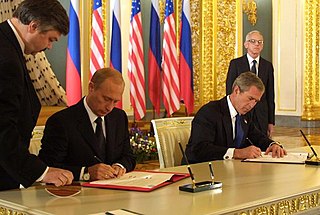
The Treaty Between the United States of America and the Russian Federation on Strategic Offensive Reductions (SORT), also known as the Treaty of Moscow, was a strategic arms reduction treaty between the United States and Russia that was in force from June 2003 until February 2011 when it was superseded by the New START treaty.

The Nuclear Disarmament Party (NDP) was an Australian political party formed in June 1984. It was founded by medical researcher Michael Denborough as the political arm of the Australian anti-nuclear movement, which had been active since the early 1970s.
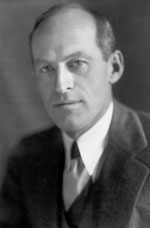
Millard Evelyn Tydings was an American attorney, author, soldier, state legislator, and served as a Democratic Representative and Senator in the United States Congress from Maryland, serving in the House from 1923 to 1927 and in the Senate from 1927 to 1951.

The 87th United States Congress was a meeting of the legislative branch of the United States federal government, composed of the United States Senate and the United States House of Representatives. It met in Washington, D.C. from January 3, 1961, to January 3, 1963, during the final weeks of Dwight D. Eisenhower's presidency and the first two years of John Kennedy's presidency. The apportionment of seats in the House of Representatives was based on the 1950 United States census, along with two seats temporarily added in 1959.

Adrian Sanford Fisher was an American lawyer and federal public servant, who served from the late 1930s through the early 1980s. He was associated with the Department of War and Department of State throughout his professional career. He participated in the U.S. government's decision to carry out Japanese-American internment and the international (1945–46) Nuremberg trial, and in State Department Cold War activities during the Harry S. Truman administration. He was the State Department Legal Adviser under Secretary of State Dean Acheson. During the John F. Kennedy, Lyndon B. Johnson and Jimmy Carter administrations, Fisher was directly involved in the negotiations of international nuclear testing and non-proliferation agreements.
James Paul Warburg was a German-born American banker. He was well known for being the financial adviser to Franklin D. Roosevelt. His father was banker Paul Warburg, member of the Warburg family and "father" of the Federal Reserve system. After World War II, Warburg helped organize the Society for the Prevention of World War III in support of the Morgenthau Plan.
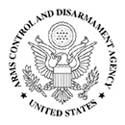
The U.S. Arms Control and Disarmament Agency (ACDA) was an independent agency of the United States government that existed from 1961 to 1999. Its mission was to strengthen United States national security by "formulating, advocating, negotiating, implementing and verifying effective arms control, nonproliferation, and disarmament policies, strategies, and agreements."

The Under Secretary for Arms Control and International Security Affairs (T) is a position within the U.S. Department of State that serves as Senior Adviser to the President and the Secretary of State for Arms Control, Nonproliferation, and Disarmament.
Dr. Randall Caroline Forsberg led a lifetime of research and advocacy on ways to reduce the risk of war, minimize the burden of military spending, and promote democratic institutions. Her career started at the Stockholm International Peace Research Institute in 1968. In 1974 she moved to Cambridge, Massachusetts to found the Institute for Defense and Disarmament Studies (IDDS) as well as to launch the national Nuclear Weapons Freeze Campaign. Randall Forsberg was accompanied by an important colleague by the name of Helen Caldicott while she was leading the Nuclear freeze movement in both Manhattan and Central Park. Both women were met with many challenges in their efforts to lead the Nuclear Freeze Movement. These challenges included gender discrimination and discreditation as influential leaders by the media. Forsberg's strong leadership in the nuclear freeze movement is thought to be very influential in the writing of foreign policy during the Reagan administration and is even credited with catalyzing the negotiation of the INF treaty between President Reagan and Mikhail Gorbachev.
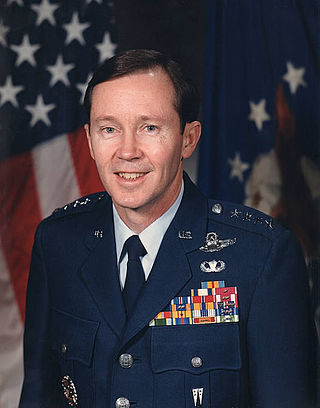
George Lee Butler, sometimes known as Lee Butler, is an American retired military officer. He was commander in chief, United States Strategic Command, and the last commander of Strategic Air Command. Following his retirement from the military he became active in the nuclear disarmament movement, calling for the outright abolition of nuclear weapons.

Ambassador Ronald Frank Lehman II is currently Director of the Center for Global Security Research at the United States Department of Energy's Lawrence Livermore National Laboratory. He is also Chair of the Governing Board of International Science and Technology Center, an intergovernmental organization headquartered in Moscow and is a member of the Department of Defense Threat Reduction Advisory Committee.

The Arms Control and Disarmament Act of 1961, 22 U.S.C. § 2551, was created to establish a governing body for the control and reduction of apocalyptic armaments with regards to protect a world from the burdens of armaments and the scourge of war.

The Campaign for Nuclear Disarmament (CND) is an organisation that advocates unilateral nuclear disarmament by the United Kingdom, international nuclear disarmament and tighter international arms regulation through agreements such as the Nuclear Non-Proliferation Treaty. It opposes military action that may result in the use of nuclear, chemical or biological weapons and the building of nuclear power stations in the UK.
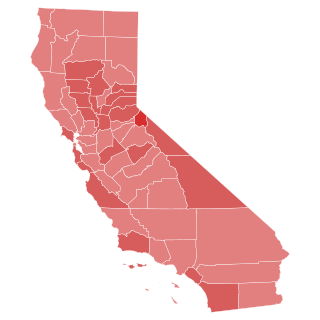
The 1962 United States Senate election in California was held on November 6, 1962.

Bruce I. Turner is an American diplomat who is the U.S. representative to the Conference on Disarmament, with the rank of Ambassador.